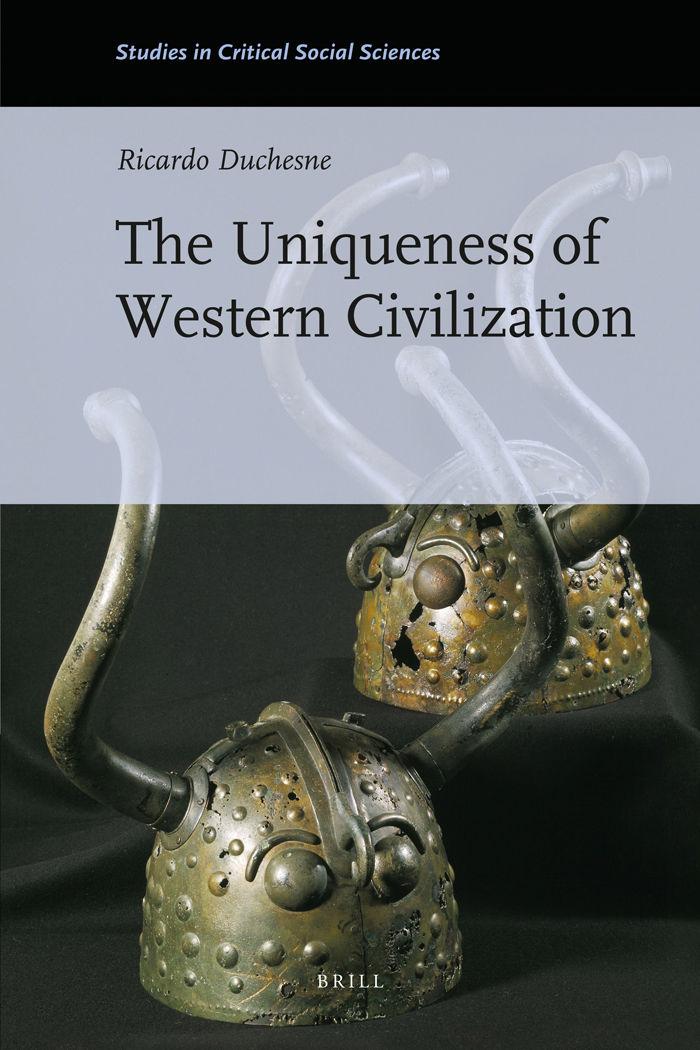You are here
The Uniqueness of Western Civilization (2011)
Primary tabs
| Size | Seeds | Peers | Completed |
|---|---|---|---|
| 2.54 MiB | 1 | 0 | 145 |

.
This book has five separate but closely related objectives. First, it seeks to trace the ideological sources behind the multicultural eff ort to “provincialize” the history of Western civilization. It will be argued that the devaluation of Western culture that swept the academic world starting around the 1960s was part of a wider and newly emerging intellec-
tual movement that included the rise of anthropological relativism, critical theory, dependency theory, evolutionary materialism, post-modernism, feminism, and identity politics.
The second aim is to assess the empirical adequacy of a highly influential set of revisionist works published in the last two decades dedicated to the pursuit of dismantling the “Eurocentric” consensus on the “rise of the West.” Th e focus will be on explicating, interpreting, connecting, systematizing, supplying background information, and refuting the arguments of multicultural revisionists who claim that there were “surprising similarities” between the West and the non-Western world as late as 1800–30 and that the Industrial Revolution was the one transformation that fi nally set Europe on a different path of development. Th is book is quite determined in its eff orts to demonstrate that the entire revisionist school is founded on precarious and tendentious claims in its attempts to rewrite the history of the West.
The questionable pursuit of the revisionist school will be addressed by means of a conscientious analytical and detailed review of a vast body of secondary sources and fi ndings.
Th e third objective of this book will be to argue that the traditional Eurocentric historiography on the rise of the West still holds much significance despite the unrelenting criticisms it has faced in the last few decades. Th e standard historiography includes the classical exponents of Europe’s uniqueness as well as contemporary historians and sociologists whose primary interests are directed towards debating the causes of Europe’s ascendancy. In defending their perspectives, this book will also go beyond them by considering numerous additional sources from historians of Europe who have written about Western achievement from the ancient Greeks to the present. Th e central contention will be that the West has always existed in a state of variance from the rest of the world’s cultures. For example, some of the most significant divergences would include the “Greek miracle,” the Roman
invention of the legal persona, the Papal revolution, the invention of mechanical clocks, the Portuguese voyages of discovery, the Gutenberg revolution, the Cartographic revolution, the Protestant reformation, the “rational” mercantilist state, and the “industrial enlightenment.” As such, the main question is not ‘why modern science emerged in Europe
and not in the civilizations of Islam and China,’ nor ‘why England industrialized first;’ rather, it has to do with ‘why the great accomplishments in the sciences and arts have been overwhelmingly European.’
The fourth objective is to insist that the development of a liberal-democratic culture was an indispensable component of the rise of the West. Th ere is more to a modern agent in Western culture than a scientific or industrialized person who performs specialized roles based on effort and merit. The ideals of freedom and the reasoned pursuit of truth were cultivated and realized in the course of Western time.
Finally, the book will argue that the roots of the West’s “restless” creativity and libertarian spirit should be traced back to the aristocratic warlike culture of Indo-European speakers. The Indo-Europeans were a distinctively pastoral, horse-riding, mobile, and war-oriented culture governed by a spirit of aristocratic egalitarianism. As this book will demonstrate, the primordial basis for Western uniqueness lay in the ethos of individualism and strife. For Indo-Europeans, the highest ideal of life was the attainment of honorable prestige through the performance of heroic deeds.
This book’s clear admiration for Western civilization, its higher cultural legacy, and its aristocratic roots will likely satisfy none of the politically sensitive and motivated orthodoxies currently in vogue in academia. I am also aware that I have risked making arguments about areas of history I know little about. Hopefully I will have compensated somewhat for this lack by paying serious attention to the most pertinent, intelligent, and prominent secondary sources available to us. I should be satisfied if this book were to add some amount of fruitful controversy over this inexhaustible subject.
- Log in to post comments
